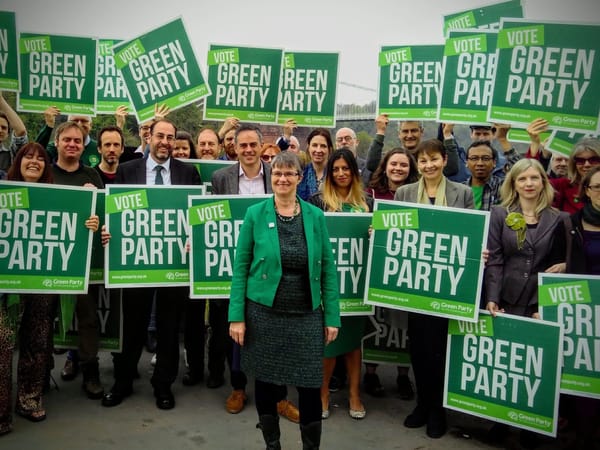Railroad switch - Tories change tracks
Trains such as these will hopefully one day be a thing of the past.
On 20th May 2021 the UK government published a white paper titled ‘Williams/Shapps Rail Review’, including some of the greatest shake-ups to the British railway service in decades. Following the timetabling shambles of 2018, where trains were consistently delayed and over-crowded, the paper represents a soft form of renationalisation under the name of Great British Railway (GBR), a public body that will officially own both tracks and trains by 2023. Further to this, more immediate changes such as subsidised flexi tickets for part-time commuters available from June 2021 are also included. Aside from the intrinsic confusion that goes along with a plan for renationalisation being put forward by a Conservative government, one must ask whether the changes are needed, or whether this is simply the cabinet fixing things that aren’t broken.
British railways were built exclusively by private companies, and come the end of the Second World War these had restructured and polymerised into the “Big Four” railway companies of Britain. The war, much like the recent pandemic, had decimated the railway companies due to colossal downturn in demand for rail travel and the damage to infrastructure caused by combat. As bankruptcy for the Big Four was looming, but rail demand was sure to return, Clem Attlee’s (Labour) government passed the 1947 Transport Act, which among other things bought up all rail company shares under the auspices of British Railways. In 1994, John Major’s (Conservative) government allowed re-privatisation, then in 2002 Blair’s (Labour) government created the Network Rail we’re all familiar with today, which essentially owned and maintained all tracks, but left stations and trains in the control of private companies. Okay, history lesson over.
As well as the attention-grabbing prospect of public ownership, the Rail Review also contails a number of smaller details that will undoubtedly appeal to passengers: train companies contracted to provide the rail services will only receive government money if the trains are on time and clean; contactless payment will be made widely available, making national railways more akin to the London Underground system; trains will be better synched to other public transport to synergise journeys from beginning to end. The Today Programme highlighted the need for rail expansion to better link Northern cities and move away from London-centrism. It is currently quicker to get from Hull to London than from Hull to Liverpool. Furthermore, the paper highlights that in the year 2019/20, half of all trains in Northern England were late. Until now franchises have been largely without competition, as passengers have no other choice of rail service, as is the case with all monopolies. The paper also highlights that since 2012, 2/3rds of contracts for rail franchises were given without competition, meaning that only one entity bid for control of the station in each instance. Sounds like far too much control and not enough accountability if you ask me.
It may not all be good news though. Unions have signalled worries of job losses down the line (excuse the pun) and spending cuts as rail investment comes under more direct control of the Treasury. Fears are exacerbated by GBR setting ticket prices, any subsidy for which will come from the taxpayer. Confusingly, after continually highlighting the shortcomings of Network Rail over the past 20 years, the two top jobs in GBR are set to be taken by Network Rail staff. Criticism of similar historical efforts have often focused around the government’s inability to not micromanage public bodies, which leads to the public body being unable to complete the tasks it’s there to do. Restrictions on such government intervention are not clarified in the document. Let’s hope Shapp’s traditional conservative values will shine through and nannying will be left off the agenda.
Mick Lynch, General Secretary of the Rail Union RMT, gave a scathing view of the GBR proposal, saying it didn’t go far enough and that a better solution would have been total public ownership. Lynch highlighted that the current franchises receive subsidy at the same time as exporting profits abroad, where rail company shareholders often reside. He also echoed concerns of austerity and job losses as a result of Treasury control. Conservative thinking refutes this with the idea that private companies allow for better innovation, although it must be granted to Lynch this is not exactly the picture that British railways have painted over the last 25 years.
Grant Shapps, Transport Secretary and one of the white paper’s co-authors, highlighted flaws in the current system, such as the fact that currently there are 400 people employed to determine who is at fault when a train is delayed. This is actually hilarious to look into. On the Delay Attribution Board website, comprised of Network Rail and Rail company representatives, there is more than one page on deciding blame due to damage or delay caused by a train hitting a bird, depending on how big the bird is. Apparently, if the train hits a peacock, swan or goose, then it’s Network Rail’s fault, but if it’s a smaller bird then of course the rail company should have done more to prevent it. While this is quite funny, I think it is bureaucracy that all stakeholders can agree we would be better without.
Overall, I think the plans for a shake-up are much needed and there’s potential benefit to rail users and employees. Shapps has firmly declared that the government is committed to expanding the rail system and protecting jobs, all while not immediately increasing rail prices. All we can do is wait and see whether improvements will follow, or whether these are empty promises.
Sam Lovatt
News Writer






